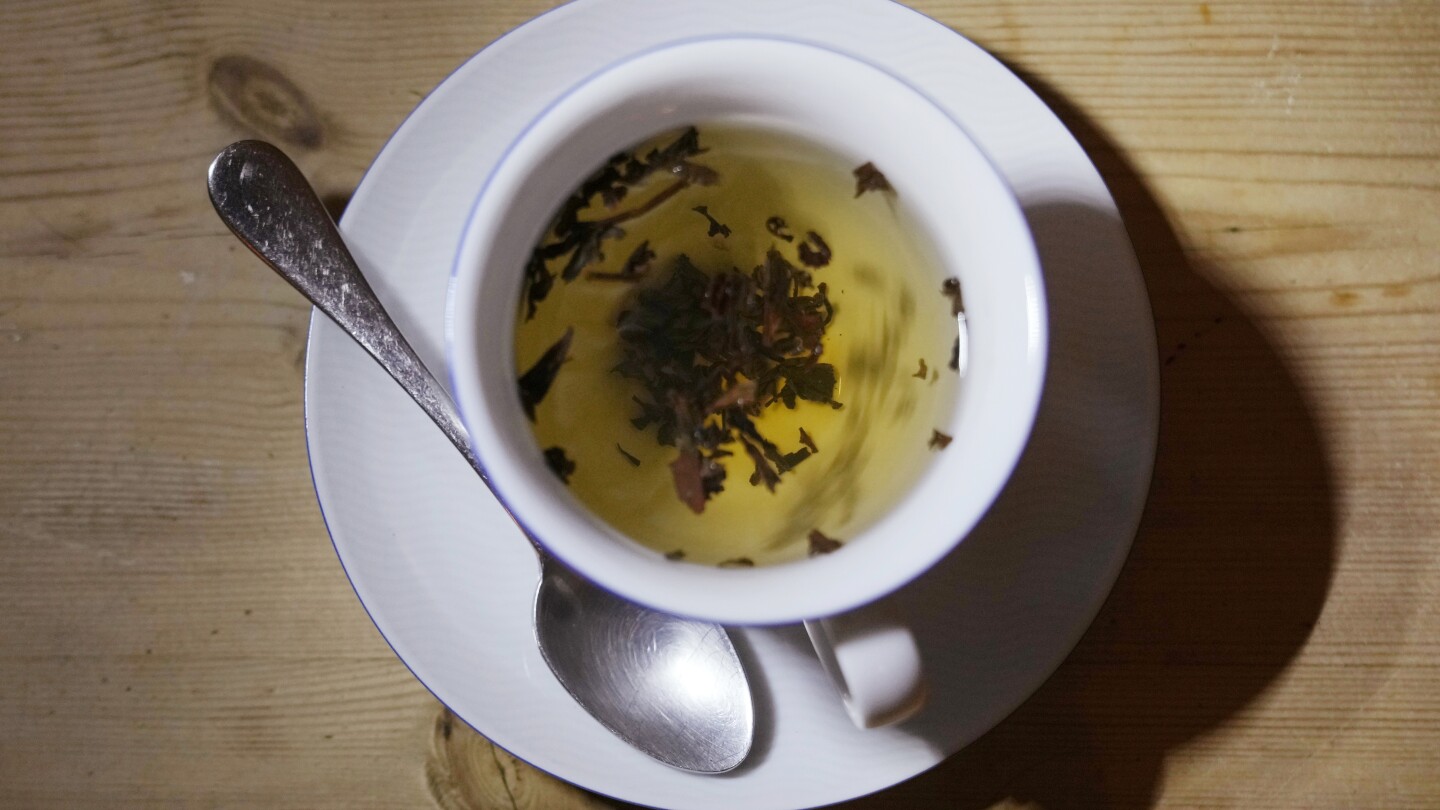- cross-posted to:
- world
- cross-posted to:
- world
cross-posted from: https://lemmy.world/post/11138800
An American scientist has sparked a trans-Atlantic tempest in a teapot by offering Britain advice on its favorite hot beverage.
Bryn Mawr College chemistry professor Michelle Francl says one of the keys to a perfect cup of tea is a pinch of salt. The tip is included in Francl’s book “Steeped: The Chemistry of Tea,” published Wednesday by the Royal Society of Chemistry.
Not since the Boston Tea Party has mixing tea with salt water roiled the Anglo-American relationship so much.
The salt suggestion drew howls of outrage from tea-lovers in Britain, where popular stereotype sees Americans as coffee-swilling boors who make tea, if at all, in the microwave.
…
The U.S. Embassy in London intervened in the brewing storm with a social media post reassuring “the good people of the U.K. that the unthinkable notion of adding salt to Britain’s national drink is not official United States policy.”
Their ideas have some merit and I’ll test out the salt thing, BUT they immediately lose all credibility when they say that heating water in a microwave is unhealthy.
I make my tea with a kettle like everyone else, that’s beside the point. Heating water in a microwave is absolutely in no way whatsoever unhealthy, and I seriously question the competency of anyone - and the voracity of their claims - who suggests heating water in a microwave is unhealthy.
That’s just… wild. Haha.
Perhaps because people rarely clean their microwave, and boiling water can splash up on the top of the microwave and drip back into the cup
you don’t boil it that hard…
How hard do you boil it? Does your microwave have an in-built thermometer which stops the heating at the right temperature like a kettle?
you uhh… you look at it.
You stare through the radiation-shielding mesh for the entire time hoping to see the bubbles and stop it before it froths everywhere? No wonder I keep seeing all these warnings about superheated water!
you can only super heat distilled water. that’s not a thing with regular drinking water lol
It’s the main thing that people seem to talk about regarding microwaving water. But regardless of that, do you sit and watch the water through the microwave window?
Now, you say that, but the concentration of heat in a microwave is completely random. You can have parts of the water at 60° while other bits are being superheated to a couple of hundred degrees
also, that’s why they have spinning plates
you use your eyes, superheating only happened with distilled water. just don’t use distilled
As an American that also uses a kettle the occasional times I make tea, is it that they think the microwave is unhealthy, or just that a kettle is better. Because I know with the kettle I can set the temp, and from what I understand some teas are better brewed at different temps. With the microwave, you kinda just have boil.
The microwave is literally faster if you’re just making one cup of tea. Why should I sit around for a whole kettle to boil if I can just microwave one cup for two minutes? Plus it’s already in the container you’re going to drink it out of. Absolutely silly.
You don’t fill the whole kettle, do you?
Just full it to minimum for a single cup.
12 seconds from my water filter.
I have an electric kettle of ~1.6L capacity. I fill it with the minimum 0.5L and it boils in less than a minute.
If you’re using a stove kettle, I understand why Microwaves can be faster, but outright saying so is a bit of an exaggeration.
Two minutes. It takes less than that to boil water in a kettle.
What kettle are you using?
They’re probably using a stovetop kettle with too much water instead of an electric kettle.
-
You don’t fill a whole kettle, you just put in the water you need.
-
British kettles legitimately boil faster than ones stateside because of our higher mains electricity voltage. A quick boil kettle in the UK is far quicker than a standard domestic microwave.
Edit: I just timed my kettle (I was craving a cuppa anyway); one cup of water, 53 seconds. I bet your microwave can’t top that (mine certainly can’t).
-
In the UK they have proper electricity in domestic properties and kettles boil quickly…
People hear about microwave radiation and they think about ionizing radiation.
Is that in the article somewhere? I saw the reference to it being an American thing, but no mention of its healthiness.
There’s a quote in the BBC article
But chief among her advice is to never, ever heat up the water in a microwave: “It’s less healthy and it does not taste as good,” Prof Francl says.
Same applies to putting salt in your tea ya daft cunt 😂
“Unfounded fears about spooky microwaves makes using them unhealthy. But take my advice and add extra salt into your diet in new and inventive ways because it might make things taste marginally, subjectively better.”
“Americans as coffee-swilling boors who make tea, if at all, in the microwave”
I’ve never felt so seen.
This is the best summary I could come up with:
LONDON (AP) — An American scientist has sparked a trans-Atlantic tempest in a teapot by offering Britain advice on its favorite hot beverage.
Bryn Mawr College chemistry professor Michelle Francl says one of the keys to a perfect cup of tea is a pinch of salt.
The salt suggestion drew howls of outrage from tea-lovers in Britain, where popular stereotype sees Americans as coffee-swilling boors who make tea, if at all, in the microwave.
The U.S. Embassy in London intervened in the brewing storm with a social media post reassuring “the good people of the U.K. that the unthinkable notion of adding salt to Britain’s national drink is not official United States policy.”
The product of three years’ research and experimentation, the book explores the more than 100 chemical compounds found in tea and “puts the chemistry to use with advice on how to brew a better cup,” its publisher says.
She also advocates making tea in a pre-warmed pot, agitating the bag briefly but vigorously and serving in a short, stout mug to preserve the heat.
The original article contains 398 words, the summary contains 177 words. Saved 56%. I’m a bot and I’m open source!
Is this a declaration of war? That White House need burning down again? 😉
We have crossposts now? Cool!
Have you ever met Jack Frost?







